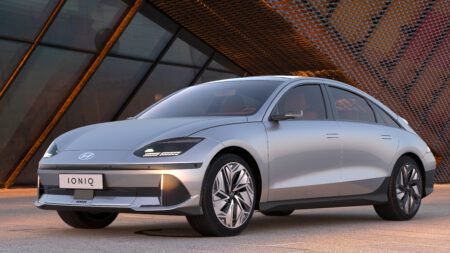Clear and present policy, alongside private and public collaboration, is essential for not only a successful energy transition but also to keep improving the affordability and maintain the positive trajectory of EV adoption. That’s the message coming from industry experts following the recent announcement of UK battery start-up Britishvolt going into administration.
As headlines continue to present a negative picture of EVs, many voices in the industry have countered with solutions and positivity. “There’s a lot of push back at moment around EVs in the media, with a strong focus on affordability,” said Dr Andy Palmer, Chairman of European battery cell developer, Inobat. “Looking at the Moores Curve equation, mass production of batteries, and therefore EVs, will ultimately drive price points down. Which is why we need domestic battery cell production.”
It’s a sad fact that currently less than 5% of UK cars are fully electric, meaning the benefits of EVs are available to just a few. “The EV market is growing rapidly,” said Fiona Howarth, CEO, Octopus Electric Vehicles, “A typical British driver can save over £1,000 a year by charging at home instead of filling up with petrol; and drivers saving up to 40% on their monthly lease costs via employee benefit schemes. With average lead times of nine months, we need a firm signal to car makers to deliver high volumes of clean cars to the UK now.”
Some media outlets have rightly pointed out the expense of public rapid charging, the reality is that for the vast majority of EV drivers home charging makes it significantly cheaper than fuelling a combustion car. “While the media constantly obsesses on the costs of public charging, they forget to mention that 80% of EV owners charge at home using low-rate night-time tariffs,” said Quentin Willson, Founder of FairCharge. “The authors who write these anti-EV pieces clearly don’t drive or own EVs, otherwise this glaring omission would be obvious.”
The overriding message from the industry experts is that negative headlines shouldn’t be leveraged to push old school agendas. The threat of climate change is very real, and no one is immune from the negative consequences.
“We have an opportunity today to make a change that will benefit all future generations,” said Ian Johnston, CEO at Osprey Charging Network, “So we must not pause or slow down our commitment to the ZEV mandate at this moment. Consumer demand for EVs is growing even stronger each day, and now in 2023 we will see a mass deployment of literally thousands of new public charge-points located in reliable, easy to access and easy to use charging hubs across the UK, from the tip of Cornwall up to the Scottish Highlands.”
Despite the failure of Britishvolt, the UK is still a prime location for making the transition to clean energy a successful one. “There is a huge opportunity for the UK to become a genuine world leader in battery and EV manufacturing, with the opportunity to export these products to further boost our economy,” said Euan McTurk, Consultant Battery Electrochemist at Plug Life Consulting. “Yet, some naysayers appear to be using the demise of Britishvolt to try to hamper proactive policy, forgetting that any failure to switch British industry to EVs will result in massive imports of EVs built overseas, zero exports of British-built vehicles and the UK being an industrial irrelevance. The UK Government needs to at least match the US’ highly successful Inflation Reduction Act – which is directly responsible for a wave of new battery and EV gigafactories planned in the US – to prove their seriousness about, and commitment to, the task in hand, and provide the certainty required to attract private capital to make the UK a green tech industrial powerhouse.”





